Beach Boys
以全国最受欢迎冲浪乐团起家的Beach Boys,1960年代成为美国最重要的流行团体,在主流听众与乐评之间,也是(在某个短暂时期里)唯一能与Beatles巨大成就相抗衡的乐团。从他们第一张地区性畅销单曲"Surfin"开始,Wilson三兄弟--Brian、Dennis、Carl,加上表哥Mike Love及友人AlJardine,便建构起流行乐团有史以来最精细也最耀眼的和谐音色。60年代中期,随着Brian Wilson在录音室的制作技巧大幅跃进,益发娴熟,Beach Boys以1966年颠峰时期的专辑「Pet Sounds」与冠军单曲"Good Vibrations",证明了他们是60年代里,最顶尖的音乐团体之一。虽然Brian Wilson每下愈况的用药恶习,与企图击败Beatles的偏执欲念,让他在听到Beatles的专辑「Sgt. Pepper's Lonely Hearts Club Band」之后,精神完全崩溃,后期只能间断地参与运作,但整个乐团仍勇敢而坚定地朝70及80年代迈进。虽然他们1966年之后的作品往往被贬抑(如果以整体表现来认定的话),但事实上Beach Boys进入70年代后,仍然作出了许多伟大的音乐。最佳的证明是1970年的专辑「Sunflower」,每位成员都个别展示了过去未充分发挥的天份。Carl Wison替代了Brian Wilson,成为乐团名义上的领队,也是一名坚实而优异的制作人;Mike Love继续在现场表演中,担任视觉焦点的位置;而Dennis Wilson则发展了他日后出名的写歌天赋。虽然90年代持续的法律缠讼,与部分团员的私自巡回演出,模糊了Beach Boys之所以成为伟大乐团的历史,但他们每每能抓住商业潮流,攀上60年代艺术发展浪头的精准能力,仍使他们成为美国首屈一指的优秀乐团。大事记乐团出身于加州洛杉矶南方郊区,滨太平洋海岸的小镇Hawthorne。Brian、Dennis和Carl的父亲,是一位兼职的作曲家,脾气暴躁,偶尔性喜怒骂。三兄弟成长的地方离海边虽仅数哩远,然而只有Dennis Wilson对冲浪运动有兴趣。由于Brian对50年代的合声团体,如the Four Freshmen和the Hi-Lo's的兴趣使然,三兄弟年轻时常一起练习合唱。表哥Mike Love也常不预期地加入他们,而Brian在高中的美式足球队友Al Jardine的参与,则使他们有了第五位成员。乐器方面(Brian弹贝斯、Carl弹吉他,Dennis打鼓)与录音室的租用上,Jardine的双亲帮了不少忙。他们并录下了一首由Brian Wilson和Mike Love合写的新式歌曲"Surfin'",这张单曲最初是在Candix厂牌下发行,彼时在全国榜上小有名气,而原始团名Pendletones(此字改写自冲浪文化中一种流行的Pendleton恤衫),在与Capitol唱片签约后,才正式改名为Beach Boys。Wilson兄弟的父亲Murray,代表他们与唱片公司交涉,后来也成为乐团的经纪人。然而在Capitol旗下推出作品前,Jardine为了去中西区念大学,便离开了乐团。Wilson兄弟的另一位友人David Marks,则暂代他的位置。终于,在1962年中期,Beach Boys发行了他们在大厂牌底下的首张专辑,「Surfin' Safari」。专辑内的同名单曲,超越过往的成就,进入了榜行榜前20名,也助长了刚开始在南加州盛行的冲浪摇滚(surf-rock)疯潮(必须感谢同时期Dick Dale、Jane & Dean、the Chantays及许多其它艺人的投入)。后继的同风格单曲"Surfin' U.S.A."在1963年初进入前十名时,Jardine正要离开学校返回乐团。此时,Beach Boys已经灌录了两张专辑。一张专辑12首歌,除了畅销单曲之外,还加入了一些新歌。虽然Capitol的政策规定他们要与制作人合作,但Brian Wilson很快便接管了这工作,并且开始将乐团的音乐领域扩展到冲浪摇滚之外的广堥境界。到了1963年底时,Beach Boys已经灌录了满满的三张专辑,不但是排行榜前十名的常客,还不中断地持续巡回演出。Brian也不断地朝制作人之路前进,最佳的证明便是第三张专辑「Surfer Girl」。虽然冲浪歌曲仍然占专辑大部分比例,但在同名单曲("Surfer Girl")、"Catch a Wave",尤其是"In My Room"这首歌之中,展现了他们在写曲、制作与合音上的大幅进步,格外令人震惊的是,这个乐团仅有短短两年的录音历史。Brian深入钻研Phil Spector著名的音墙制作技术,不但在未来大有所获,也显露了他在音乐知识上的直觉、精准及深度。接下来的一年,"I Get Around"成为Beach Boys的第一首冠军单曲。名气最盛的时期里,1964年末所发行的「Beach Boys Concert」专辑,在排行榜冠军位置上占据了四周,而这只是他们同时在榜上的五张专辑之一而已。乐团也到了欧洲去巡回,但Brian Wilson受不了压力与时间的限制,年底的时候,他决定退出巡回,专注在录音室制作上。(Glen Campbell暂时顶替了一阵子,后来由他们的友人兼同事Bruce Johnson永远地取代了Brian的表演位置。)有了Beach Boys作为他将音乐传布到世界的使者,Brian Wilson开始全心投入录音室制作,并征选了洛杉矶客座乐手中的侥侥者,在其它团员返回加上人声之前,先行录制好乐器演奏的部分。单曲"Help Me, Rhonda"在1965年初,成为Beach Boys的第二首冠军曲。在第七张录音室专辑「The Beach Boys Today9里,Brian的制作技术到达了一个全然不同的境界。在那个摇滚年代最初还属男女情爱、打情骂俏的阶段,这张专辑的第二面却是一个意味深长的宣示,一连串慢节奏(downtempo)的抒情歌,编成一套组曲,将歌词的写作层次从年轻人短暂的激情中超脱而出,进入更为成熟的情爱领域。1965年发行了两张专辑:「Summer Days (And Summer Nights!)」和「Beach Boys Party」。前者所收录的"California Girls",是Brain把具感染力的旋律与炫丽合音,融合于精良制作技术中的最佳例证之一。(也仍然是他最喜欢的一首歌)然而,这张专辑中的其它新式歌曲,如"Amusement Parks USA"、"Salt Lake City"、和"I'm Bugged at My Old Man"似乎倒退回前一张专辑的水平,也拉低了整张专辑原该有的优异表现。当Capitol唱片要求他们录一张圣诞节应景专辑时,「Beach Boy's Party」专辑出现了,这是一张录音室现场即兴合唱的专辑,意外诞生出一首畅销单曲"Babara Ann",整张专辑的销售量也出奇地好。但若拉大格局来看,在Brian Wilson准备作出他自认最具影响力的音乐作品之前,这些专辑不过是暂时垫档用罢了。1965年下旬,Beatles发行了「Rubber Soul」。这张专辑的歌曲品质之高。与整体表现的完整程度,激起Brain Wilson开始写歌的动机。在作词者Tony Asher的协助下,一系列组曲的制作过程,逐渐将这个年轻人推往情感的成熟境地。虽然Capitol唱片对一张缺乏销畅歌曲的专辑显得兴趣缺缺,但这个团体仍在人声与合音部分,比过去下了更多的功夫。结果便产生了这张发行于1966年的「Pet Sounds」,远远超越了他们的努力范围。「Pet Sounds」在摇滚史上仍被视为有史以来制作最为精良、最有影响力的专辑之一,这张专辑也为Brian Wilson多年来在制作与写曲的完美主义倾向,作了一个总结。评论界大力称赞,但它所开创出来的新方向却没得到美国听众的认同;虽然仍然进入前十名,但「Pet Sounds」却是他们从初试啼声后,第一张没有拿到金唱片的专辑。相反地,美国之外的世界市场,对这张专辑的反应却相当正面且喜爱。在英国,这张专辑不但拿到了第二名,而且在NME杂志的年终票选上,他们也拿到了年度最佳团体,甚至超越了Beatles。先前得知Beatles发行了单曲"Paperback Writer / Rain"和专辑「Revolver」,一度让他们垂头丧气,但现在却一扫而空。Beach Boys的下一首单曲"Good Vibrations",原先是在「Pet Sounds」的录音过程所写就,但Brain Wilson为了给自己更充裕的制作时间,临时将它抽掉。完成「Pet Sounds」后,他才继续展开歌曲的制作,最后整整花了六个月的时间(以及三间不同的录音室)在这首单曲上。1966年十月发行的"Good Vibrations",年底时成为他们的第三首冠军单曲,而且仍是有史以来最好的单曲之一。从1966年底到1967年初,Brian Wilson疯狂地投入下一张专辑制作,一个原订为「Dumb Angel」,后改名为「Smile」的计划。他企图让这张专辑超越「Pet Sounds」,成为「Today」之后最好的作品。他找来一位古怪的客座乐手兼作词者Van Dyke Parks,作为他写歌的搭档,录下了堆积如山的盘带,随着时间推展,里面的东西愈趋零碎,让人摸不清究竟目的为何。Brian Wilson在艺术上的逐渐沉溺与尝试药物,早已引发团员们的不信任,当他们被召至录音室,唱着Parks所写的歌词(如"一个瞎了眼的贵族(A blind class aristocracy)" / 透过观剧望远镜你看到(Back through the opera glass you see) / 大众席与节拍器被水淹没了(The pit and the pendulum drawn) / 圆柱捣毁了化装戏服(Columnaded ruins domino / 覆盖了城市,冲刷着景物(Canvas the town and brush the backdrop)"),心里更有千百个不愿意。团员们和Brian Wilson之间产生了严重的意见冲突,他们认为Brian Wilson所服用的大麻与LSD已经影响了他的判断力,而Brian Wilson则认为团员们意图阻挠他投身于即将来临的迷幻年代(psychedelic era)。当「Smile」的录音工作进入1967年春天后,Brian Wilson工作时数也减少了,这是他在Beach Boys职业生涯中第一次失去了方向。如果说「Smile」计划中有什么是值得抢救下来的,这些希望也在五月时幻灭了。就在Beatles发行了「Sgt. Pepper's Lonely Heart Club Band」几周前,Brain Wilson正式放弃了这个计划。八月时,终于又发了一张新单曲"Heroes and Villains",取了部分"Good Vibrations"的风格,明显地比不上原曲,因此也失去了进入排行榜前十名的机会。同年秋天,团员们聚集在Brian Wilson住处所改装而成的Bel Air录音室,替「Smile」计划中的歌曲录制了新版本,并加入一些新作品,最后便成了「Smiley Smile」这张专辑。Carl Wilson对此作品的评语是「取代满贯全垒打的牺牲触击」,但这几近完成的计划,却因缺乏整体性,而破坏了这个团体以前瞻思考所建立起的名声。当Beatles已经站在迷幻年代的先锋群中,Beach Boys仍然迟疑于青少年市场中,年轻听众随即将他们视为保守陈旧的代表。该年夏天,万众瞩目的蒙特利音乐节(Monterey Pop Festival)本来是一个绝佳的扭转契机,但也被白白浪费掉了。虽然Beach Boys很快地重组,并在1967年底发行了回归基本路线的专辑「Wild Honey」但重回嬉皮与乐评心中世界顶尖团体的愿望,却因时效上的延迟而消失殆荆当乐迷、乐评与电台企划的期待一再落空,大家也傻眼了,对他们未来的计划,也无可避免地投以怀疑的眼光。一如预期,「Wild Honey」和1968年的「Fiends」招致了各方的恶评。即便如此,由零碎的歌曲片段与混音过程中所保留的录音细节,仍使得这些饶富趣味的唱片存活了下来。一直要到乐迷辨识到1969年的Beach Boys已经与1966年大为不同的事实后,「Wild Honey」略为成型的blue-eyed soul风格,与「Friends」中轻松的流行交响乐架构,才重拾大众的喜爱。进入前二十名的单曲"Do It Again"被视为这群老江湖的怀旧之作,但1969年的单曲"20/20"则表现得更好。但Capitol唱片仍然放弃续约的机会,一年后,Beach Boys改与Reprise厂牌签约。在Brother/Reprise厂牌下所发的第一张专辑,是1970年的「Sunflower」。歌曲分别由不同团员谱写而成,加上他们重拾60年代光芒万丈的合音,使这张唱片显得格外优异。1971年推出的专辑「Surf's Up」,名称取自一首从Smile计划中重新加工的歌曲。虽然唱片本身受到喜爱,但其间所展现的不再是个风格一致的乐团,更多的反而是团员间迥异的个人兴趣。录音期间,Dennis Wilson开始与乐团保持距离,不愿意再担任鼓手一职。乐团只好在1972年初,从南非摇滚乐团the Flame中找来两位成员:鼓手Ricky Fataar和吉他手Blondie Chapin(Carl Dennis前一年制作了他们在Brothers唱片旗下的同名专辑)。Carl找了Fataar和Chaplin,组成Carl and the Passion乐团,发行首张专辑「So Tough」,一头栽进了70年代早期仍在学步阶段的AOR-rock。在「Surf' Up」专辑里,这是有史以来第一次,Beach Boys的经典美声不复存在。Brian Wilson的精神稳定度日益败坏,大部分的时间只待在寓所里,甚至连与外界接触的意愿都没有,虽然偶尔在写歌与录音上有做出些许贡献,但他已不再是乐团的成员了(他甚至很少出现在专辑封面或打歌的场合)。虽然外界不甚明白,为何Reprise要冒如此大的风险,但这家唱片公司仍然授予Beach Boys下两张专辑丰厚的预算,并将他们的大部分家人与随行人员(还包括了一整间的录音室)送到阿姆斯特丹。1973年,Beach Boys以「Holland」专辑再度出发,虽站上排行榜第四十名的位置,单曲"Sail On, Sailor"(由Chapin主唱)也确实得到某些调频广播节目的青睐,然而,「Holland」里糊成泥巴的声音除了招来极严厉的批评外,什么也没有留下。或许是因为怯场的缘故,Beach Boys实质上在1970年中期便已从录音室退下。取而代之的是,他们全心放在准备现场表演,而这些演出也迅速在观众间建立起极好的口碑。对Beach Boys来说,这一步走得很好,因为他们可以撇开60年代在纯摇滚乐上所下的功夫,把焦点集中在畅销曲上头。他们的第三张现场专辑「The Beach Boys in Concert」,在1973年问世。接着在1974年,Capitol唱片从仓库里挖出他们的旧录音,重新包装,发行精选辑「Endless Summer」。乐团和唱片公司都瞪大了眼睛,看得怔目结舌,因为这套双LP精选居然冲上了冠军的位置,而且在榜上停留长达三年之久,成为一张金唱片。「Endless Summer」的成功,要归功于一股逐渐兴起的老摇滚怀旧风潮,这也使得Sha Na Na、American Graffiti与Happy Days这些老团又开始变得热门起来。就连对他们向来不友善的滚石杂志(Rolling Stone Magazine),也在该年年底将Beach Boys选为年度最佳团体。另一张精迅Spirit of America」则在1974年进入前十名,而Beach Boys只好又被推进录音室,进行新的录音。以「Brian归队了!(Brian's Back!)」这种不实的营销手法作号召,在1976年发行的专辑「15 Big Ones」,有50年代的怀旧风,也有Brian Wilson所写,像"Had to Phone Ya",这种虽然怪异但仍算合适的曲子,两者间作了很好的平衡。不论乐评对此举有多么不谅解,但它还是进入了前十名并成为金唱片。Brian Wilson也在下张专辑「The Beach Boys Love You」里,有了更为吃重的角色(本来几乎要命名为「Brian Loves You」的「The Beach Boys LoveYou」,原先的打算是作为Brian Wilson的个人专辑)。与那些在歌词里唱着"Til I Die",注定会在70年代早期吃香的流行歌比较起来,在这张专辑里的曲子里,像"Let Us Go on This Way"和"Mona",你可以听到Brian Wilson对synth-pop这种低鸣的原创风格,有着较为正面的欣喜情绪存在。对照于老乐迷对Beach Boys的期待,「Love You」这张专辑虽然怪,却仍然是这些年来他们最好的专辑。在1979年的「M.I.U. Album」之后,乐团与CBS唱片签下一笔大合约,条件则是每张专辑里都必须有Brian Wilson的参与。然而,「L.A.(Light Album)」、「Keepin' the Summer Alive」这两张令人绝望的尝试,却终结了他重回聚光灯下的短暂时光。由于Mike Love的两位兄弟,Stan和Steve在财务管理上的操作不当,助长了Mike Love和Wilson兄弟间的紧张关系,就在70年代即将结束的时候,Beach Boys又陷入了分裂的局面。1980年,Dennis Wilson和Carl Wilson离开了Beach Boys,发展他们的单飞生涯。(Dennis在1977年便已发行他的第一张专辑「Pacific Ocean Blue」,而Carl则在1981年发了首张同名专辑。)Brian Wilson也因为吹气球般地发胖到300磅,在1982年被乐团除名;然而1983年Dennis的不幸溺毙,却又把团员们重新聚集起来。1985年,Beach Boys发行了同名专辑,以单曲"Getcha Back"的气势,再度进入排行榜前四十名。然而,这也是80年代最后一张可称得上是Beach Boys自己的专辑了。1980年代中期,Brian Wilson精神与体重状况,都有了逐渐的改善,但其它团员对他的导师Eugene Landy博士却越来越不信任。Landy是个不可靠的精神治疗师,据说他不但以某些眩目的技巧,操弄多愁善感的Brian Wilson,实际上也掌控了他的生活。他不但在Brian Wilson的自传「Wouldn't It Be Nice」参了一脚,还替他1988年的首张个人专辑「Brian Wilson」写歌词。乐评与乐迷们虽然欢迎Brian Wilson归队,但排行榜是无情的,尤其当Beach Boys又得到大家的注意时。同年稍晚,电影「鸡尾酒(Cocktail)」原声带里的单曲"Kokomo",再度拿下排行榜冠军宝座,也促成定位不清的精选辑「Still Cruisin'」诞生。乐团后来控告Brian Wilson,目的是想把Landy赶走;但后来Mike Love为了歌曲版权费的问题,也告了Brian Wilson一状。(Brian Wilson常承认Mike Love在大部分的创作里都有参与)姑且不论这许多争执,Beach Boys在90年代初期仍然持续地巡回,而且Mike Love和Brian Wilson在1995年时又开始一起写歌了。虽然并没有新专辑诞生,但Beach Boys带回来的这张「Stars and Stripes, Vol. 1」,找来了乡村乐的明星重唱他们的畅销曲,并由他们担任幕后合音。Brian Wilson的纪录片「I Just Wasn't Made for These Times」也在迪斯尼频道上播放,伴随了一张原声带,里头有他亲自演绎Beach Boys经典曲目的稀有版本。然而就在乐团整军待发,为下一张新专辑作准备时,1998年,Carl Wilson却因癌症而去世。在首张个人专辑发行十年后,Brian Wilson才察觉他对另类摇滚圈所产生的巨大影响;他和他的头号歌迷(High Llamas乐团的)Sean O'Hagan及Andy Paley合作了一系列的录音。然而,再一次地,投入的心力却无法坚持到最后;这些录音后来被抛弃,改采另一张更倾向主流但也制作过度的作品「Imagination」。1999年,有不只三个从Beach Boys衍伸出的团体或个人,同时在美国巡回。包括了Brian Wilson的个人演出、Mike Love所领导的"官方版"Beach Boys,和Al Jardine所领团的Beach Boys Family。2000年的时候,Capitol唱片设立重新发行计划,焦点集中在这个乐团70年代绝版已久的几张专辑。虽然他们1966年之后的作品往往被贬抑(如果以整体表现来认定的话),但事实上Beach Boys进入70年代后,仍然作出了许多伟大的音乐。最佳的证明是1970年的专辑「Sunflower」,每位成员都个别展示了过去未充分发挥的天份。 Carl Wison替代了Brian Wilson,成为乐团名义上的领队,也是一名坚实而优异的制作人;Mike Love继续在现场表演中,担任视觉焦点的位置;而Dennis Wilson则发展了他日后出名的写歌天赋。虽然90年代持续的法律缠讼,与部分团员的私自巡回演出,模糊了Beach Boys之所以成为伟大乐团的历史,但他们每每能抓住商业潮流,攀上60年代艺术发展浪头的精准能力,仍使他们成为美国首屈一指的优秀乐团Beginning their career as the most popular surf band in the nation, the Beach Boys finally emerged by 1966 as America's preeminent pop group, the only act able to challenge (for a brief time) the overarching success of the Beatles with both mainstream listeners and the critical community. From their 1961 debut with the regional hit "Surfin," the three Wilson brothers -- Brian, Dennis, and Carl -- plus cousin Mike Love and friend Al Jardine constructed the most intricate, gorgeous harmonies ever heard from a pop band. With Brian's studio proficiency growing by leaps and bounds during the mid-'60s, the Beach Boys also proved one of the best-produced groups of the '60s, exemplified by their 1966 peak with the Pet Sounds LP and the number one single "Good Vibrations." Though Brian's escalating drug use and obsessive desire to trump the Beatles (by recording the perfect LP statement) eventually led to a nervous breakdown after he heard Sgt. Pepper's Lonely Hearts Club Band, the group soldiered on long into the 1970s and '80s, with Brian only an inconsistent participant. The band's post-1966 material is often maligned (if it's recognized at all), but the truth is the Beach Boys continued to make great music well into the '70s. Displayed best on 1970's Sunflower, each member revealed individual talents never fully developed during the mid-'60s -- Carl became a solid, distinctive producer and Brian's replacement as nominal bandleader, Mike continued to provide a visual focus as the frontman for live shows, and Dennis developed his own notable songwriting talents. Though legal wranglings and marginal oldies tours during the '90s often obscured what made the Beach Boys great, the band's unerring ability to surf the waves of commercial success and artistic development during the '60s made them America's first, best rock band.The origins of the group lie in Hawthorne, CA, a southern suburb of Los Angeles situated close to the Pacific coast. The three sons of a part-time song plugger and occasionally abusive father, Brian, Dennis, and Carl grew up a just few miles from the ocean -- though only Dennis had any interest in surfing itself. The three often harmonized together as youths, spurred on by Brian's fascination with '50s vocal acts like the Four Freshmen and the Hi-Lo's. Their cousin Mike Love often joined in on the impromptu sessions, and the group gained a fifth with the addition of Brian's high-school football teammate, Al Jardine. His parents helped rent instruments (with Brian on bass, Carl on guitar, Dennis on drums) and studio time to record "Surfin'," a novelty number written by Brian and Mike. The single, initially released in 1961 on Candix and billed to the Pendletones (a musical paraphrase of the popular Pendleton shirt), prompted a little national chart action and gained the renamed Beach Boys a contract with Capitol. The group's negotiator with the label, the Wilsons' father, Murray, also took over as manager for the band. Before the release of any material for Capitol, however, Jardine left the band to attend college in the Midwest. A friend of the Wilsons, David Marks, replaced him.Finally, in mid-1962 the Beach Boys released their major-label debut, Surfin' Safari. The title track, a more accomplished novelty single than its predecessor, hit the Top 20 and helped launch the surf rock craze just beginning to blossom around Southern California (thanks to artists like Dick Dale, Jan & Dean, the Chantays, and dozens more). A similarly themed follow-up, Surfin' U.S.A., hit the Top Ten in early 1963 before Jardine returned from school and resumed his place in the group. By that time, the Beach Boys had recorded their first two albums, a pair of 12-track collections that added a few novelty songs to the hits they were packaged around. Though Capitol policy required the group to work with a studio producer, Brian quickly took over the sessions and began expanding the group's range beyond simple surf rock.By the end of 1963, the Beach Boys had recorded three full LPs, hit the Top Ten as many times, and toured incessantly. Also, Brian began to grow as a producer, best documented on the third Beach Boys LP, Surfer Girl. Though surf songs still dominated the album, "Catch a Wave," the title track, and especially "In My Room" presented a giant leap in songwriting, production, and group harmony -- especially astonishing considering the band had been recording for barely two years. Brian's intense scrutiny of Phil Spector's famous Wall of Sound productions was paying quick dividends and revealed his intuitive, unerring depths of musical knowledge.The following year, "I Get Around" became the first number one hit for the Beach Boys. Riding a crest of popularity, the late 1964 LP Beach Boys Concert spent four weeks at the top of the album charts, just one of five Beach Boys LPs simultaneously on the charts. The group also undertook promotional tours of Europe, but the pressures and time-constraints proved too much for Brian. At the end of the year, he decided to quit the touring band and concentrate on studio productions. (Glen Campbell toured with the group briefly, then friend and colleague Bruce Johnston became Brian's permanent replacement.)With the Beach Boys as his musical messengers to the world, Brian began working full-time in the studio, writing songs and enlisting the cream of Los Angeles session players to record instrumental backing tracks before Carl, Dennis, Mike, and Al returned to add vocals. The single "Help Me, Rhonda" became the Beach Boys' second chart-topper in early 1965. On the group's seventh studio LP, The Beach Boys Today!, Brian's production skills hit another level entirely. In the rock era's first flirtation with an extended album-length statement, side two of the record presented a series of down-tempo ballads, arranged into a suite that stretched the group's lyrical concerns beyond youthful infatuation and into more adult notions of love.Two more LPs followed in 1965, Summer Days (And Summer Nights!!) and Beach Boys' Party. The first featured "California Girls," one of the best fusions of Brian's production mastery, infectious melodies, and gorgeous close harmonies (it's still his personal favorite song). However, dragging down those few moments of brilliance were novelty tracks like "Amusement Parks USA," "Salt Lake City," and "I'm Bugged at My Old Man" that appeared to be a step back from Today. When Capitol asked for a Beach Boys record to sell at Christmas, the live-in-the-studio vocal jam session Beach Boys' Party resulted, and sold incredibly well after the single "Barbara Ann" became a surprise hit. In a larger sense though, both of these LPs were stopgaps as Brian prepared for production on what he hoped would be the Beach Boys' most effective musical statement yet.In late 1965, the Beatles released Rubber Soul. Amazed at the high song quality and overall cohesiveness of the album, Brian began writing songs -- with help from lyricist Tony Asher -- and producing sessions for a song suite charting a young man's growth to emotional maturity. Though Capitol was resistant to an album with few obvious hits, the group spent more time working on the vocals and harmonies than any other previous project. The result, released in May 1966 as Pet Sounds, more than justified the effort. It's still one of the best-produced and most influential rock LPs ever released, culminating years of Brian's perfectionist productions and songwriting. Critics praised Pet Sounds, but the new direction failed to impress American audiences. Though it reached the Top Ten, Pet Sounds missed a gold certificate (the first to do so since the group's debut LP). Conversely, worldwide reaction was not just positive but jubilant. In England, the album hit number two and earned the Beach Boys honors for best group in year-end polls by NME -- above even the Beatles, hardly slouches themselves with the releases of "Paperback Writer"/"Rain" and Revolver.The Beach Boys' next single, "Good Vibrations," had originally been written for the Pet Sounds sessions, though Brian removed it from the song list to give himself more time for production. He resumed working on it after the completion of Pet Sounds, eventually devoting up to six months (and three different studios) on the single. Released in October 1966, "Good Vibrations" capped off the year as the group's third number one single and still stands as one of the best singles of all time. Throughout late 1966 and early 1967, Brian worked feverishly on the next Beach Boys LP -- a project named Dumb Angel, but later titled SMiLE, that promised to be as great an artistic leap beyond Pet Sounds as that album had been from Today. He drafted Van Dyke Parks, an eccentric lyricist and session man, as his songwriting partner, and recorded reams of tape containing increasingly fragmented tracks that grew ever more speculative as the months wore on. Already wary of Brian's increasingly artistic leanings and drug experimentation, the other Beach Boys grew hostile when called in to the studio to add vocals for Parks lyrics like, "A blind class aristocracy/Back through the opera glass you see/The pit and the pendulum drawn/Columnaded ruins domino/Canvas the town and brush the backdrop" (from "Surf's Up"). A rift soon formed between the band and Brian; they felt his intake of marijuana and LSD had clouded his judgment, while he felt they were holding him back from the coming psychedelic era.As recording for SMiLE dragged on into spring 1967, Brian began working fewer hours. For the first time in the Beach Boys' career, he appeared unsure of his direction. If SMiLE ever appeared salvageable, those hopes were dashed in May, when Brian officially canceled the project -- just a few weeks before the release of the Beatles' Sgt. Pepper's Lonely Hearts Club Band. In August, the group finally released a new single, "Heroes and Villains." Very similar to the fragmentary style of "Good Vibrations," though a distinctly inferior follow-up, it missed the Top Ten. That fall, the group convened at Brian's Bel Air mansion-turned-studio and recorded new versions of several SMiLE songs plus a few new recordings and re-emerged with Smiley Smile. Carl summed up the LP as "a bunt instead of a grand slam," and its near-complete lack of cohesiveness all but destroyed the group's reputation for forward-thinking pop.As the Beatles were ushering in the psychedelic age, the Beach Boys stalled with the all-important teen crowd, who quickly began to see the group as conservative, establishment throwbacks. The perfect chance to stem the tide, a headlining spot at the pioneering Monterey Pop Festival in summer 1967, was squandered. Though the Beach Boys regrouped quickly -- the back-to-basics Wild Honey LP appeared before the end of 1967 -- their hopes of becoming the world's pre-eminent pop group with both hippies and critics had fizzled in a matter of months.All this incredible promise wasted made fans, critics, and radio programmers undeniably bitter toward future product. Predictably, both Wild Honey and 1968's Friends suffered with all three audiences. They survive as interesting records nevertheless; deliberately under-produced, including song fragments and recording-session detritus often left in the mix, the skeletal blue-eyed soul of Wild Honey and the laid-back orchestral pop of Friends made them favorites only after fans realized the Beach Boys were a radically different group in 1968 than in 1966. Sparked by the Top 20 hit "Do It Again" -- a song that saw the first shades of the group as an oldies act -- 1969's 20/20 did marginally better. Still, Capitol dropped the band soon after. One year later, the Beach Boys signed to Reprise.The first LP for Brother/Reprise was 1970's Sunflower, a surprisingly strong album featuring a return to the gorgeous harmonies of the mid-'60s and many songs written by different members of the band. Surf's Up, titled after a reworked song originally intended for SMiLE, followed in 1971. Though frequently lovable, the wide range of material on Surf's Up displayed not a band but a conglomeration of individual interests. During sessions for the album, Dennis put his hand through a plate glass window and was unable to play drums. Early in 1972, the band hired drummer Ricky Fataar and guitarist Blondie Chaplin, two members of a South African rock band named the Flame (Carl had produced their self-titled debut for Brother Records the previous year).Carl and the Passions - So Tough, the first album released with Fataar and Chaplin in the band, descended into lame early-'70s AOR. For the first time, a Beach Boys album retained nothing from their classic sound. Brian's mental stability wavered from year to year, and he spent much time in his mansion with no wish to even contact the outside world. He occasionally contributed to the songwriting and session load, but was by no means a member of the band anymore (he rarely even appeared on album covers or promotional shots). Though it's unclear why Reprise felt ready to take such a big risk, the label authorized a large recording budget for the next Beach Boys album. After shipping most of the group's family and entourage (plus an entire studio) over to Amsterdam, the Beach Boys re-emerged in 1973 with Holland. The LP scraped the bottom rungs of the Top 40, and the single "Sail On, Sailor" (with vocals by Chaplin) did receive some FM radio airplay. Still, Holland's muddy sound did nothing for the aging band, and it earned scathing reviews.Perhaps a bit gun-shy, the Beach Boys essentially retired from recording during the mid-'70s. Instead, the band concentrated on grooming their live act, which quickly grew to become an incredible experience. It was a good move, considering the Beach Boys could lay claim to more hits than any other '60s rock act on the road. The Beach Boys in Concert, their third live album in total, appeared in 1973.Then, in mid-1974, Capitol Records went to the vaults and issued a repackaged hits collection, Endless Summer. Both band and label watched, dumbfounded, as the double LP hit number one, spent almost three years on the charts, and went gold. Endless Summer capitalized on a growing fascination with oldies rock that had made Sha Na Na, American Graffiti, and Happy Days big hits. Rolling Stone, never the most friendly magazine to the group, named the Beach Boys its Band of the Year at the end of the year. Another collection, Spirit of America, hit the Top Ten in 1974, and the Beach Boys were hustled into the studio to begin new recordings.Trumpeted by the barely true marketing campaign "Brian's Back!," 1976's 15 Big Ones balanced a couple of '50s oldies with some justifiably exciting Brian Wilson oddities like "Had to Phone Ya." It also hit the Top Ten and went gold, despite many critical misgivings. Brian took a much more involved position for the following year's The Beach Boys Love You (it was almost titled Brian Loves You and released as a solo album). In marked contrast to the fatalistic early-'70s pop of "Til I Die" and others, Brian sounded positively jubilant on gruff proto-synth pop numbers like "Let Us Go on This Way" and "Mona." However idiosyncratic compared to what oldies fans expected of the Beach Boys, Love You was the group's best album in years. (A suite of beautiful, tender ballads on side two was quite reminiscent of 1965's Today.)After 1979's M.I.U. Album, the group signed a large contract with CBS that stipulated Brian's involvement on each album. However, his brief return to the spotlight ended with two dismal efforts, L.A. (Light Album) and Keepin' the Summer Alive. The Beach Boys began splintering by the end of the decade, with financial mismanagement by Mike Love's brothers Stan and Steve fostering tension between him and the Wilsons. By 1980, both Dennis and Carl had left the Beach Boys for solo careers. (Dennis had already released his first album, Pacific Ocean Blue, in 1977, and Carl released his eponymous debut in 1981.) Brian was removed from the group in 1982 after his weight ballooned to over 300 pounds, though the tragic drowning death of Dennis in 1983 helped bring the group back together. In 1985, the Beach Boys released a self-titled album which returned them to the Top 40 with "Getcha Back." It would be the last proper Beach Boys album of the '80s, however.Brian had been steadily improving in both mind and body during the mid-'80s, though the rest of the group grew suspicious of his mentor, Dr. Eugene Landy. Landy was a dodgy psychiatrist who reportedly worked wonders with the easily impressionable Brian but also practically took over his life. He collaborated with Brian on the autobiography Wouldn't It Be Nice and wrote lyrics for Brian's first solo album, 1988's Brian Wilson. Critics and fans enjoyed Wilson's return to the studio, but the charts were unforgiving, especially with attention focused on the Beach Boys once more. The single "Kokomo," from the soundtrack to Cocktail, hit number one in the U.S. late that year, prompting a haphazard collection named Still Cruisin'. The group also sued Brian, more to force Landy out of the picture than anything, and Mike Love later sued Brian for songwriting royalties (Brian had frequently admitted Love's involvement on most of them).Despite the many quarrels, the Beach Boys kept touring during the early '90s, and Mike and Brian actually began writing songs together in 1995. Instead of a new album though, the Beach Boys returned with Stars and Stripes, Vol. 1, a collection of remade hits with country stars singing lead and the group adding backing vocals. Also, a Brian Wilson documentary titled I Just Wasn't Made for These Times aired on the Disney Channel, with an accompanying soundtrack featuring spare renditions of Beach Boys classics by Brian himself. Just as the band appeared to be pulling together for a proper studio album though, Carl died of cancer in 1998.Ten years after his first solo album, Brian became aware of his immense influence on the alternative rock community; he worked with biggest-fans Sean O'Hagan (of the High Llamas) and Andy Paley on a series of recordings. Again, good intentions failed to carry through as the recordings were ditched in favor of another overly produced, mainstream-slanted work, Imagination. By early 1999, no less than three Beach Boys-connected units were touring the country -- a Brian Wilson solo tour, the "official" Beach Boys led by Mike Love, and the "Beach Boys Family" led by Al Jardine. In 2000, Capitol instituted a long-promised reissue campaign, focusing on the group's long out of print '70s LPs.

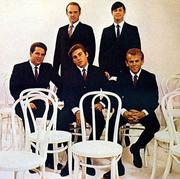
 I Get Around - Beach Boys
I Get Around - Beach Boys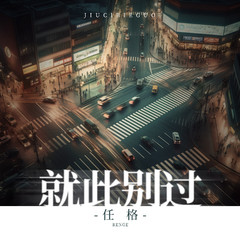
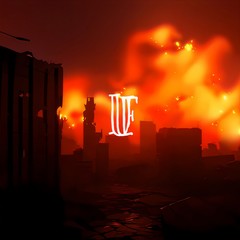
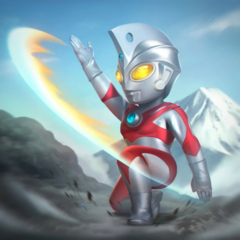
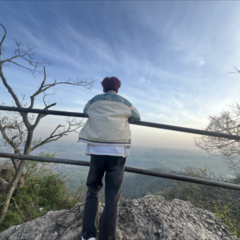

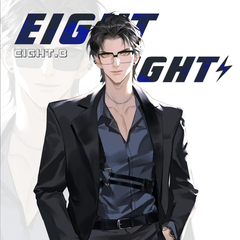




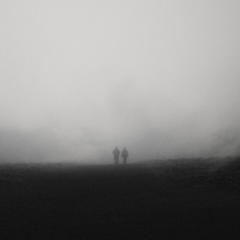
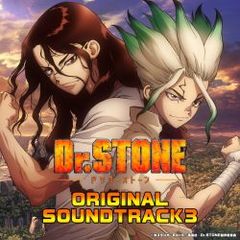

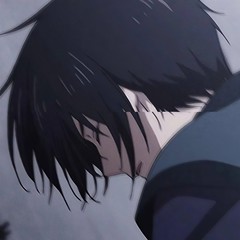
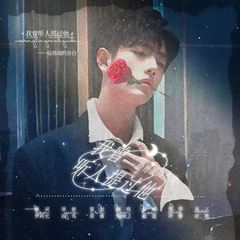
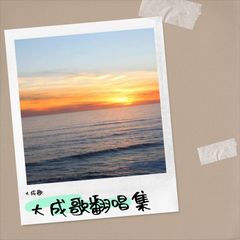













![[STATION] aespa《Dreams Come True》MV Teaser - aespa (에스파)](https://img2.kuwo.cn/wmvpic/324/79/54/2120387380.jpg?imageView2/1/w/195/h/130/format/jpg/q/60)





